
Two women hold hands at the bar on "Dyke Night" at Arcana is Durham, NC.
By: Heather Diehl
Throughout the United States, only 32 lesbian bars exist according to a list culminated by the Lesbian Bar Project. The most recent to be added to the list is the Arcana in Durham, NC.
While southern states have a reputation that may not appeal to many LGBTQ+ identifying people, there are a number of sapphic women and non-binary people that said they are pleasantly surprised by the community they have found.
“I moved here, terrified that I was moving from such a blue state to such a red state,” said Riley Whitney (they/them) who frequents the Arcana. “I’m from Massachusetts, we were the first to legalize gay marriage, and I feel safer here than I ever did up there.”
Whitney had never been able to find a space with so many sapphic people until they attended their first ‘Dyke Night’ at Arcana and instantly felt connected to the place.
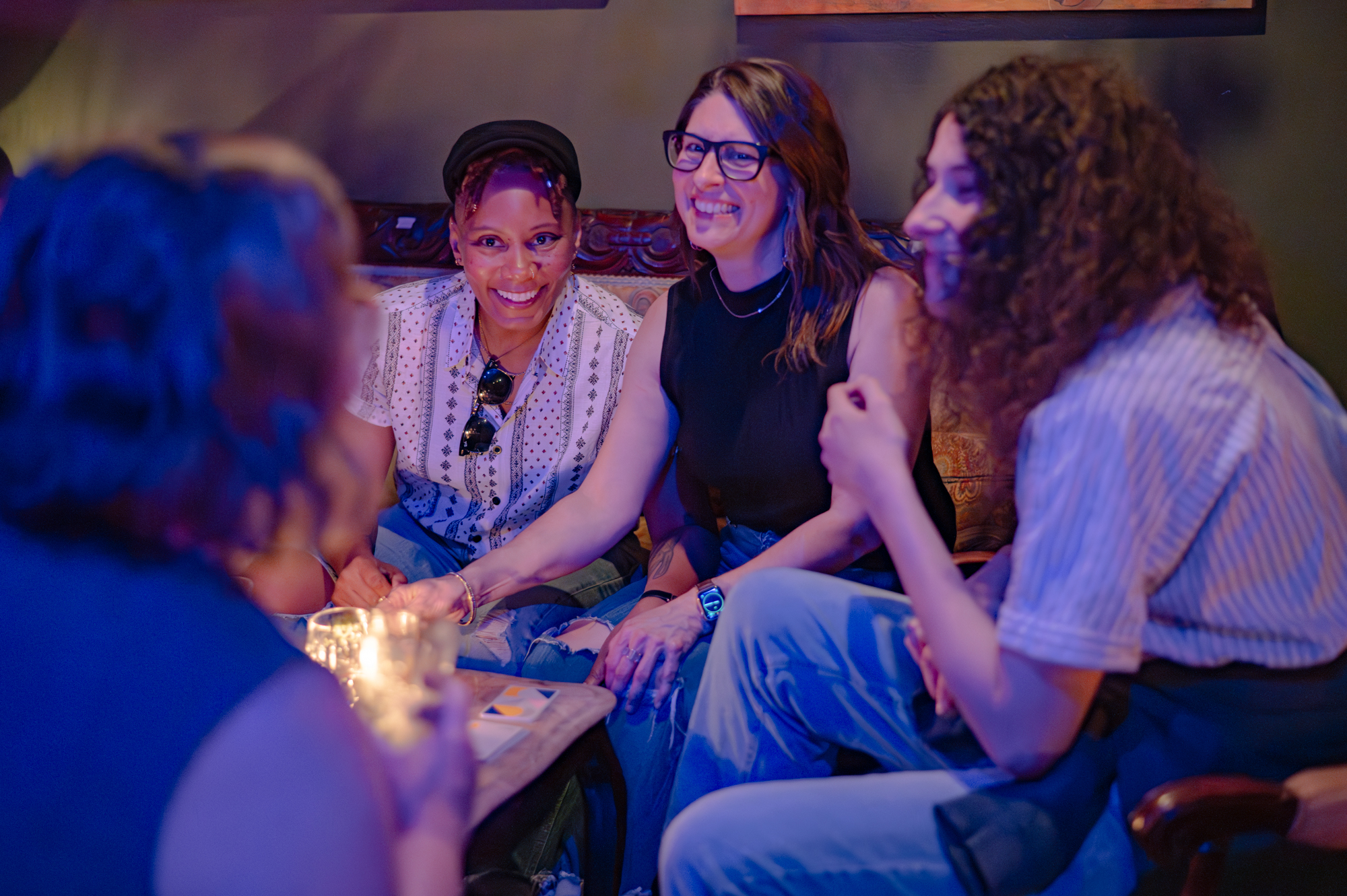
While a history of homophobia and discrimination has stifled opportunities for the LGBTQ+ community to safely foster community, they have found a way through lesbian and gay bars.
Alita Miller (she/her), a UNC student pursuing her PhD, found it hard to find community, until she went to the Arcana. She described the space as having a good energy for people to be able to talk, form connections, and foster community, encompassing the pillars of what Arcana has set out to achieve.
In 2015, Erin Karcher opened Arcana. Karcher said she is proud to run a business that promotes inclusivity and is operated by an entirely queer staff.
Every week the bar hosts different events that can appeal to different crowds, all fostering community among LGBTQ+ identifying individuals. These events range from Queer Trivia nights, craft nights, to a crowd favorite – ‘Dyke Night’.
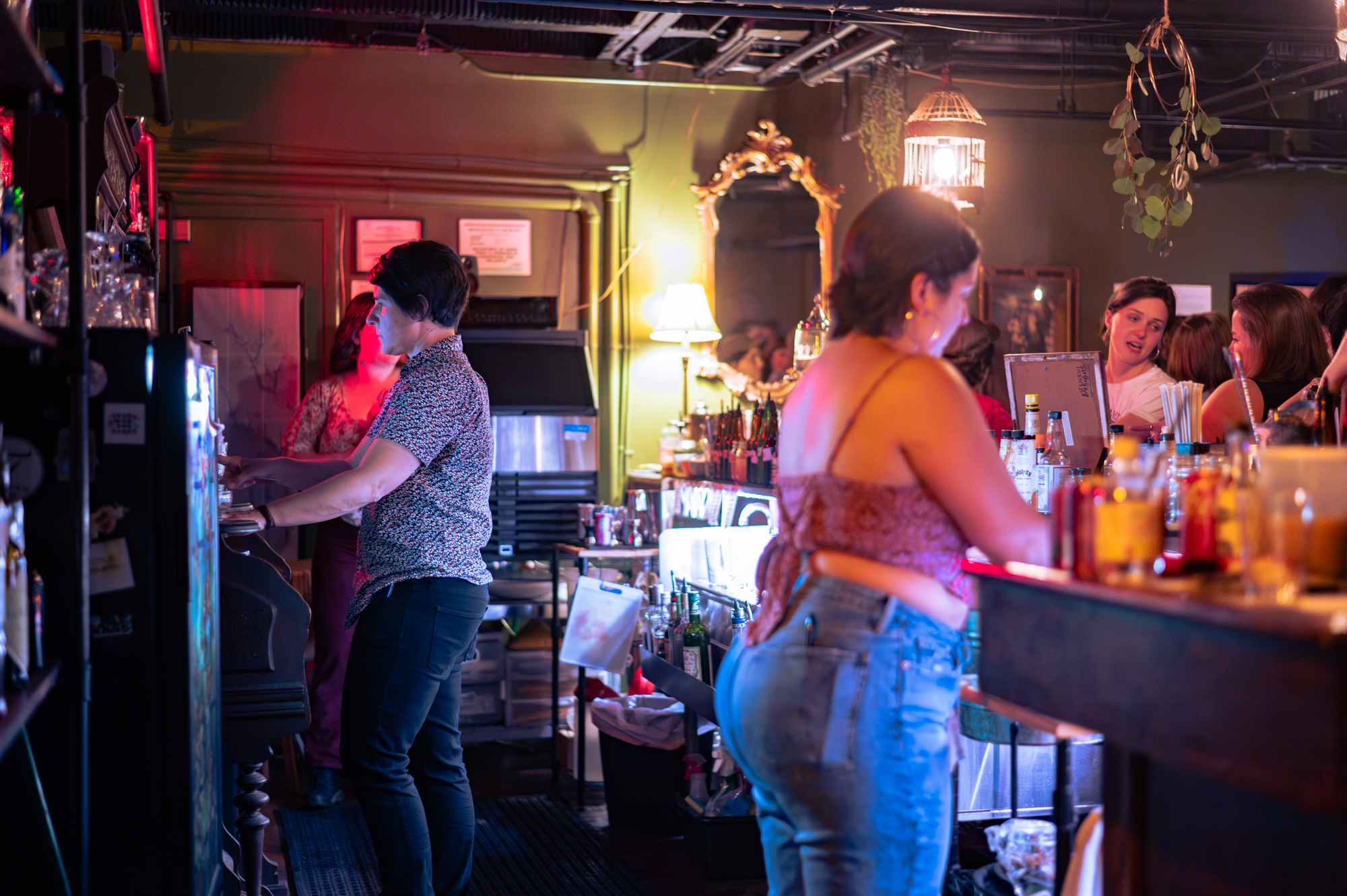
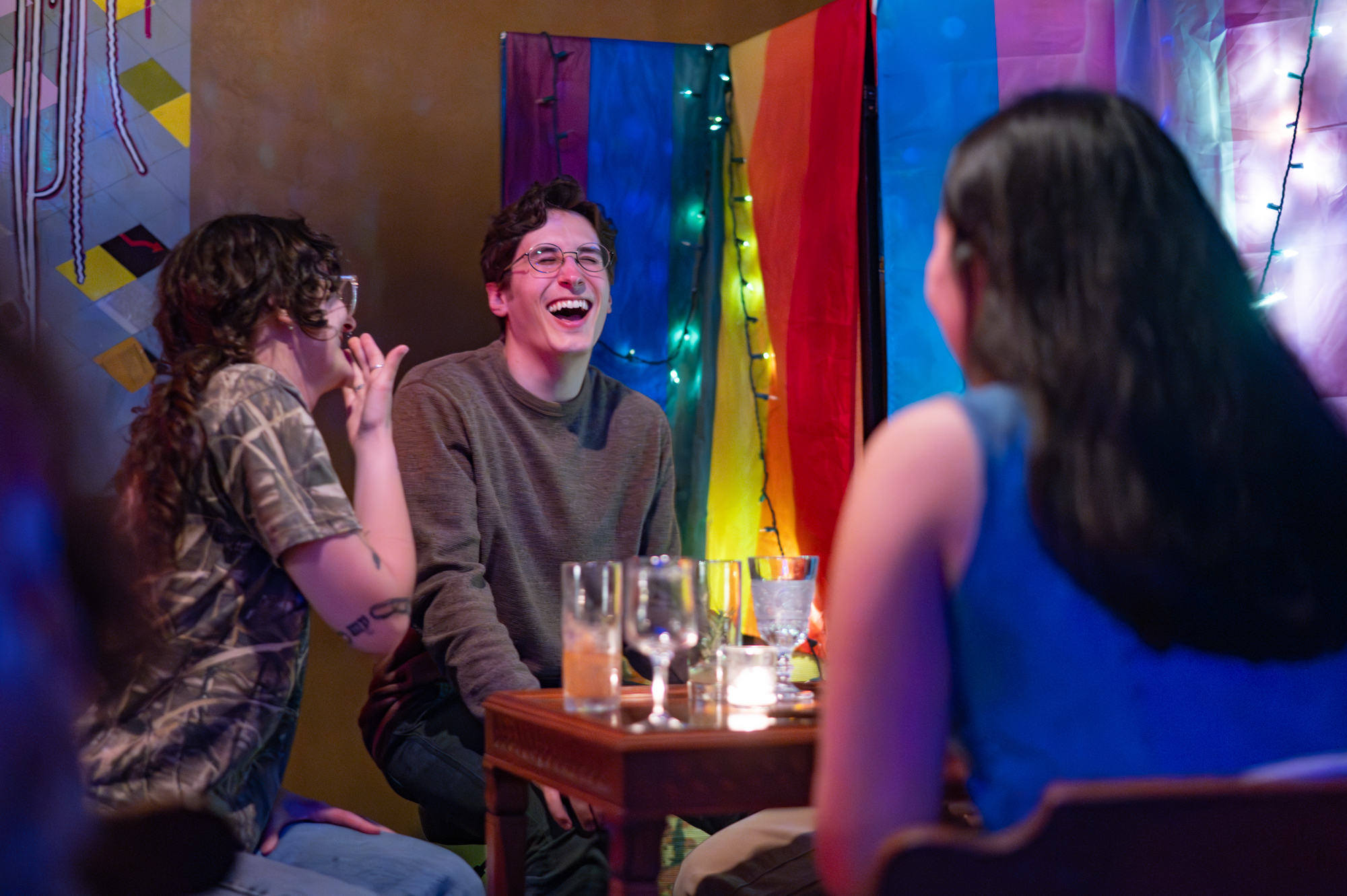
When Karcher became the sole owner of Arcana in June 2021, they began to be more adventurous with hosting overtly queer events at the bar, eventually leading it to be named a lesbian bar in 2024.
When Karcher’s employee, Meg, proposed hosting a ‘Dyke Night’, Karcher was open to seeing how it would go. Having an entirely queer staff created a safe environment for ideas like ‘Dyke Night’ to be proposed and come to fruition.
For Karcher creating an inclusive space goes beyond queer events, it includes tarot reading and creating space for “witchy” activities.
In the early days of Arcana, she had ideas of it being a speakeasy with tarot reading, and as the space has expanded and become more overtly affirming of the LGBTQ+ community, it has not lost its connection to tarot reading.
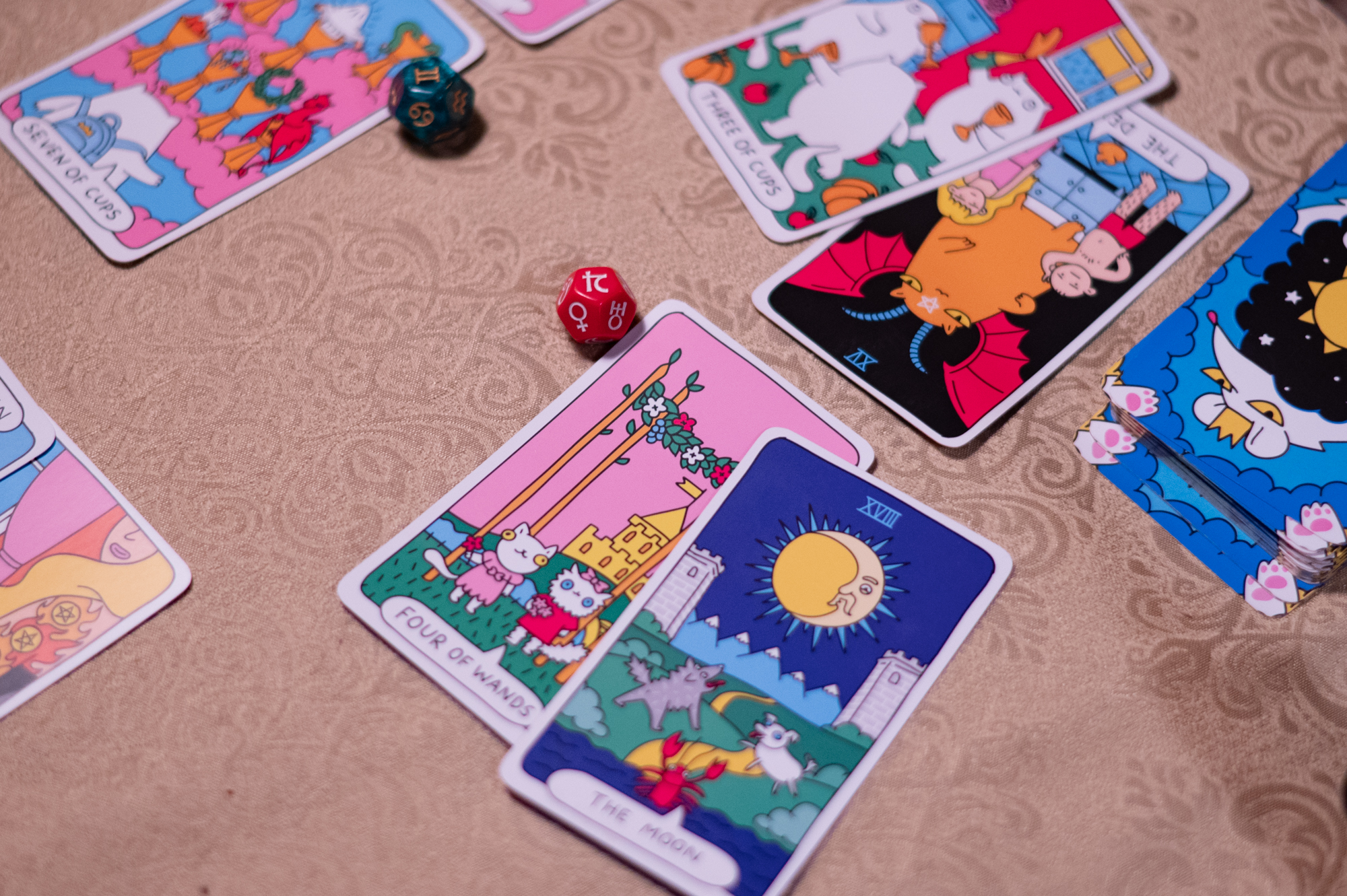
Tarot reading is seen as a special part of Arcana, attracting self-identifying witches and pagans to travel from throughout the state to come together in a space they feel is safe and affirming.
It is clear customers feel safe to be vulnerable in Arcana, allowing themselves to be immersed in the tarot reading experience in a way that for some is therapeutic. While Arcana is growing in popularity among Durhamites, its reputation seems to be spreading and bringing people to Durham in search of community.
Lesbian bars have seen a significant decline since the 1980’s, and organizations such as the Lesbian Bar Project are highlighting the lesbian bars still in existence. Some people feel compelled to try and travel to them all, which now includes Arcana, putting North Carolina on the map. Karcher even spoke about how people have used Durham being home of a lesbian bar as a selling point to encourage friends hesitant to move from northern states, like New York, to North Carolina.
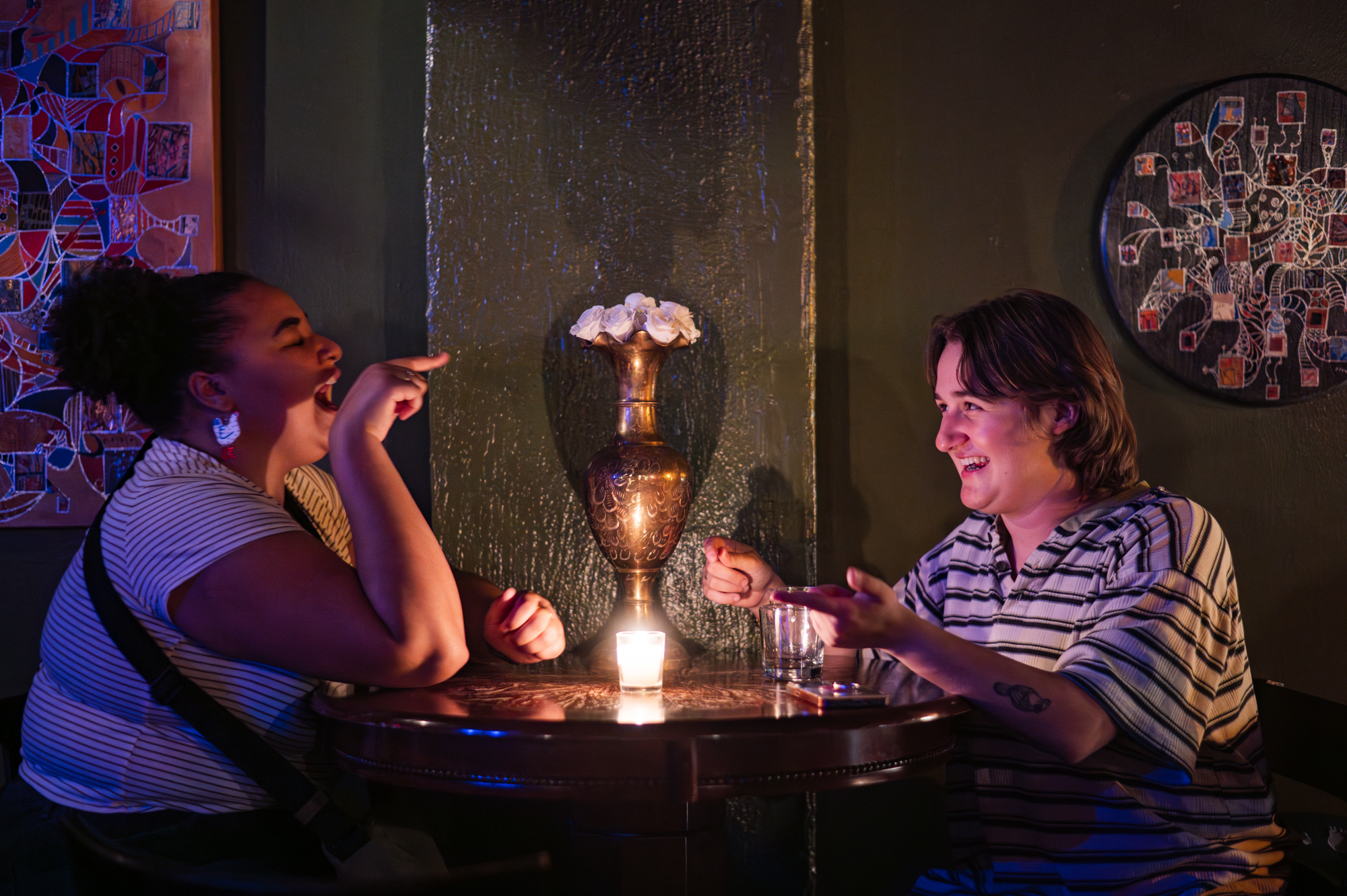
As politics surrounding the LGBTQ+ community remain a hotly debated topic, Arcana is able to offer a space where some people feel free to let their guard down, fully embrace their identity, and connect with like-minded individuals.
Lesbian bars are about more than just being a bar, they are continuing a legacy of offering refuge to members of society that face greater struggles in being accepted and building community.
Edited by: Eilah Wood